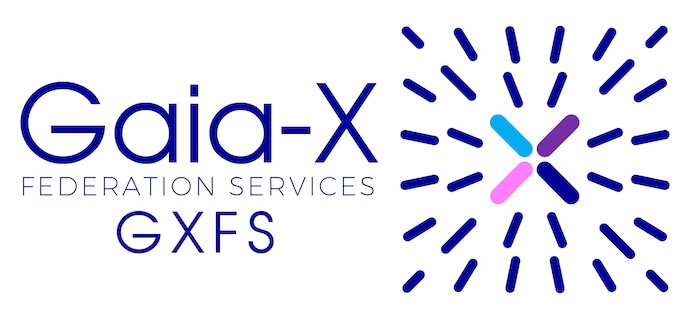
An interview with Andreas Weiss, Managing Director of eco – Association of the Internet

Whether it’s the energy or climate crisis, we need resilient data infrastructures to solve the challenges of our time by sharing data. Find out more about why collaborative data ecosystems are not a European pipe dream of a better world, but a real economic necessity in our interview with Andreas Weiss, Managing Director of the eco Association.
Gaia-X has been in the world for almost five years. Is Europe more digitally sovereign today?
Gaia-X has developed momentum and galvanised the debate. The economic potential of collaborative digital business models is undisputed today. However, we can already see from the definition of sovereignty how different expectations are. Sovereignty as a target image is very vague and actually not measurable. Resilience (e.g. through redundancy), on the other hand, is a predictable basis for achieving self-determination.
So why is a digitally sovereign Europe being called for?
Because sovereignty first and foremost means self-determination. Whether people, companies, countries or nations, a free Europe is a Europe in which everyone can decide for themselves. And not just in matters relating to their own lives, but also with regard to information, data and intellectual added value at the core of business models.
How regulated can self-determination be?
Rules and laws create security, but also influence the room for manoeuvre that science, business and society need in order to prosper. In addition to legislation, there are also private sector initiatives such as Gaia-X. Gaia-X is developing the fundamental requirements for a free and self-determined data economy.
Why are these requirements important?
These requirements enable us to build, promote and enable digital value creation on the basis of international standards and European values, not only for our continent, but also for other economies with room for self-determination.
Why for Germany in particular?
Whether machines, plants or raw materials – products from German companies are in demand globally. A decentralised, distributed data infrastructure is ideal for the value creation networks of German companies, which are just as complex and intertwined, in order to exchange and collaboratively utilise information along manufacturing, logistics and supply chains.
Exchanging data confidently and utilising it collaboratively – how is this working out economically?
On the one hand, where companies federate AI applications in order to offer digital services and reap the benefits together. On the other hand, wherever pandemics, wars, energy and chip crises have recently taken their toll on us…
… how exactly?
When supply chains falter because tankers block the Suez Canal or factories come to a standstill because processors are unavailable or production is restricted due to energy supply, this has a direct economic and social impact. The current crises show how processes that offer no alternatives and are also managed in a very centralised manner are far from sovereign. Diversified structures can reduce dependencies, compensate for fluctuations, share risks and thus increase resilience.
What does this mean for the collaborative data economy?
Decentralised and distributed infrastructures are more sovereign and more resilient. Take the Internet, for example: If individual internet networks, servers or services fail, data streams can be redirected variably so that the overall system remains intact. In order to transfer this concept to cloud processing, more and more edge computing resources are now being set up in Europe. The previous hyperscaler model only created redundancies of mega data centres, whereas the edge concept distributes the workloads across many autonomous processing locations. This is also supported by the currently notified IPCEI CIS (Important Projects of Common European Interest – Cloud Infrastructures and Services).
Why is an international focus important?
Collaborative data ecosystems are not about strengthening Europe by only operating clouds from Europe for Europe. Anyone who understands sovereignty to mean market power, dominance or protectionism is on the wrong track. What we should be aiming for is for Europe to be part of digital value creation and be able to shape it itself. However, this will only succeed if we also offer the European economy solutions that work globally and can also be shaped in a self-determined way in other economic areas. This is the real balancing act, because we need answers and solutions to the pressing questions of our time, which not only arise from events such as the recent acute crises, but which also have a long-term perspective in terms of sustainability and climate change.
How can Europe participate more in digital value creation without doing so at the expense of the climate?
First of all, digitalisation is a necessary approach to becoming more climate-neutral. It’s about using data and better networking to create more transparency and obtain detailed information for necessary decisions. When it comes to energy supply, for example, we need to be able to better understand what energy is needed at what time and where. For products, such a profound level of information can be obtained with the digital product passport, which transparently summarises components, materials and chemical substances or information on reparability, spare parts or proper disposal. In order to transparently map the product life cycle from raw material to product, a solution is required that can manage data on a decentralised and distributed infrastructure in a legally secure manner.
So are collaborative data ecosystems the solution for greater sustainability?
They are definitely part of the solution. It is also clear that such concepts will not remove plastic waste from the world’s oceans on an ad hoc basis. But it creates the environmental conditions we need to tackle the ecological challenges of our time in a collaborative and sustainable way.
Mr Weiss, thank you very much for the interview.
Author: Nils Klute, IT editor at eco – Association of the Internet Industry
